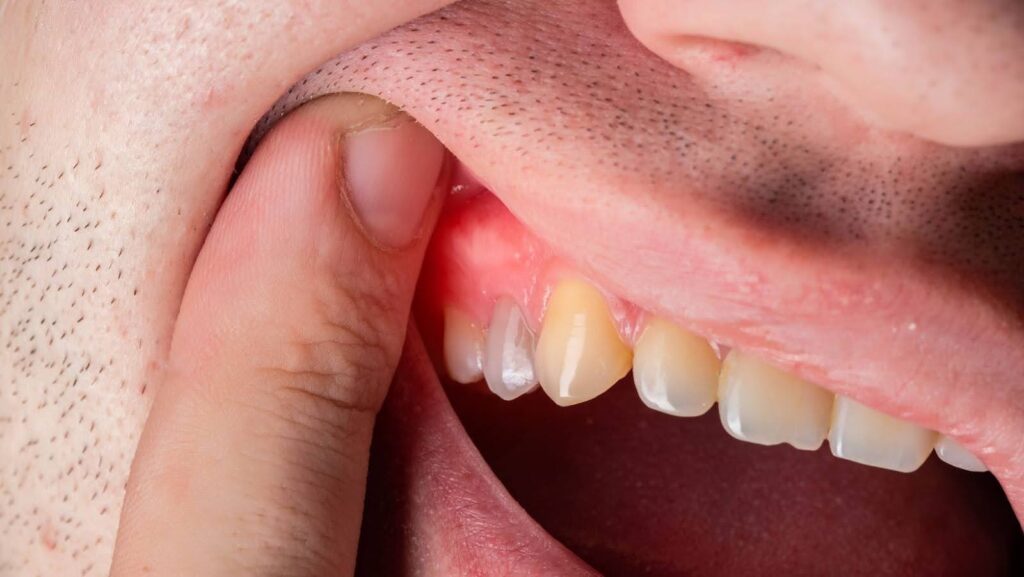Gum disease, while common, can be more than just an oral health issue—it can be a gateway to numerous other health complications if left unchecked. Thankfully, proactive care and early intervention can prevent these conditions from developing and ensure that your gums remain healthy. This comprehensive guide will provide insights into the prevention of common gum diseases, highlighting the crucial role of dental hygiene and professional care in maintaining your oral health.
Understanding Gum Diseases
Gum disease, primarily caused by the buildup of plaque, is an infection of the tissues that surround and support your teeth. It is often painless, so you may not know you have it. However, the signs can be noticeable; they include redness, swelling, bleeding, and bad breath. Gum disease generally progresses in stages, beginning with gingivitis, which is reversible with good oral hygiene, to more severe forms like periodontitis, which can lead to tooth loss if untreated.
The prevention of gum disease is fundamentally important, not just for maintaining a healthy smile but also for protecting overall health. Research links severe gum diseases to conditions such as heart disease, diabetes, respiratory disease, and osteoporosis.
Role of Dental Professionals in Prevention
Visiting a dental professional regularly, such as a Sydney Park dentist, can make a significant difference in the early detection and management of gum diseases. These experts use their training and tools to remove plaque and tartar that regular brushing and flossing might miss. They can also spot early signs of gum disease that might be overlooked by the untrained eye.
Regular check-ups allow for timely intervention, which can halt the progression of gum disease and prevent the development of more serious oral health issues. Dentists can also provide personalized advice and treatments to improve your daily oral hygiene routine, tailoring their recommendations to suit your specific needs.
Daily Oral Hygiene: The First Line of Defense
The cornerstone of preventing gum disease lies in daily oral hygiene practices. Here’s how you can keep your gums healthy:

- Brushing Properly: Brush your teeth at least twice a day with fluoride toothpaste. Use a soft-bristled brush to gently massage the gums, which stimulates them and clears away plaque without causing abrasion.
- Flossing Daily: Flossing removes food particles and plaque between the teeth and along the gum line where a toothbrush can’t reach. Daily flossing is crucial to preventing gum disease.
- Using Mouthwash: Antimicrobial mouth rinses can reduce the bacterial load in the mouth, further protecting your gums from disease.
- Changing Your Toothbrush: Replace your toothbrush every three to four months, or sooner if the bristles become frayed. A worn toothbrush won’t do a good job of cleaning your teeth.
Diet and Gum Health
What you eat plays a significant role in the health of your gums. A diet high in sugary foods and drinks can contribute to the formation of plaque, while a balanced diet can boost your immune system, making it easier to fight off infections that may cause gum disease.
- Eat Plenty of Vitamin C: Vitamin C strengthens your gums and the soft tissue in your mouth. It can protect against gingivitis, the early stage of gum disease, and can prevent your teeth from loosening.
- Crunchy Fruits and Vegetables: Foods like apples, carrots, and celery help clean teeth and cut down on plaque.
- Dairy Products: Cheese, yogurt, and other dairy products help neutralize acids in the mouth, which helps prevent gum disease and cavities.
Lifestyle Factors Affecting Gum Health
Several lifestyle choices can impact the health of your gums:

- Smoking: Smoking is strongly associated with the onset of gum disease. Smokers are more likely to produce bacterial plaque, which leads to gum infection.
- Stress: High stress can affect your body’s immune system, rendering it less effective at fighting off the bacteria that cause gum infections.
- Poor Oral Hygiene: Not brushing and flossing regularly allows plaque to build up along the gum line, increasing your risk of gum disease.
Professional Treatments and Regular Check-ups
Besides maintaining excellent home care, professional dental treatments are vital. Dentists and hygienists perform deep cleanings called scaling and root planing, where they remove tartar and bacteria from your teeth and beneath your gums. These treatments can help heal inflamed gums and prevent periodontitis.
Preventing common gum diseases isn’t just about avoiding bad breath or tooth loss—it’s about preserving your overall health and well-being. Regular visits to the dentist, excellent oral hygiene, a balanced diet, and healthy lifestyle choices are all critical factors in maintaining healthy gums. By becoming guardians of your gums, you are taking a significant step towards a healthier life. Remember, every smile tells a story, and healthy gums ensure it’s a positive one.



